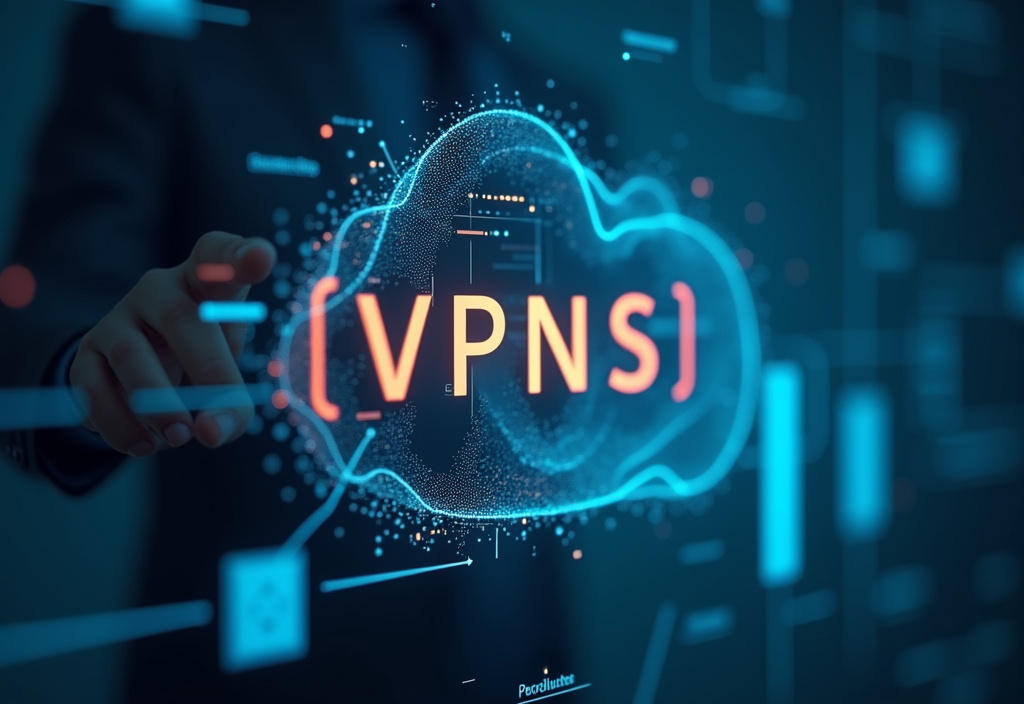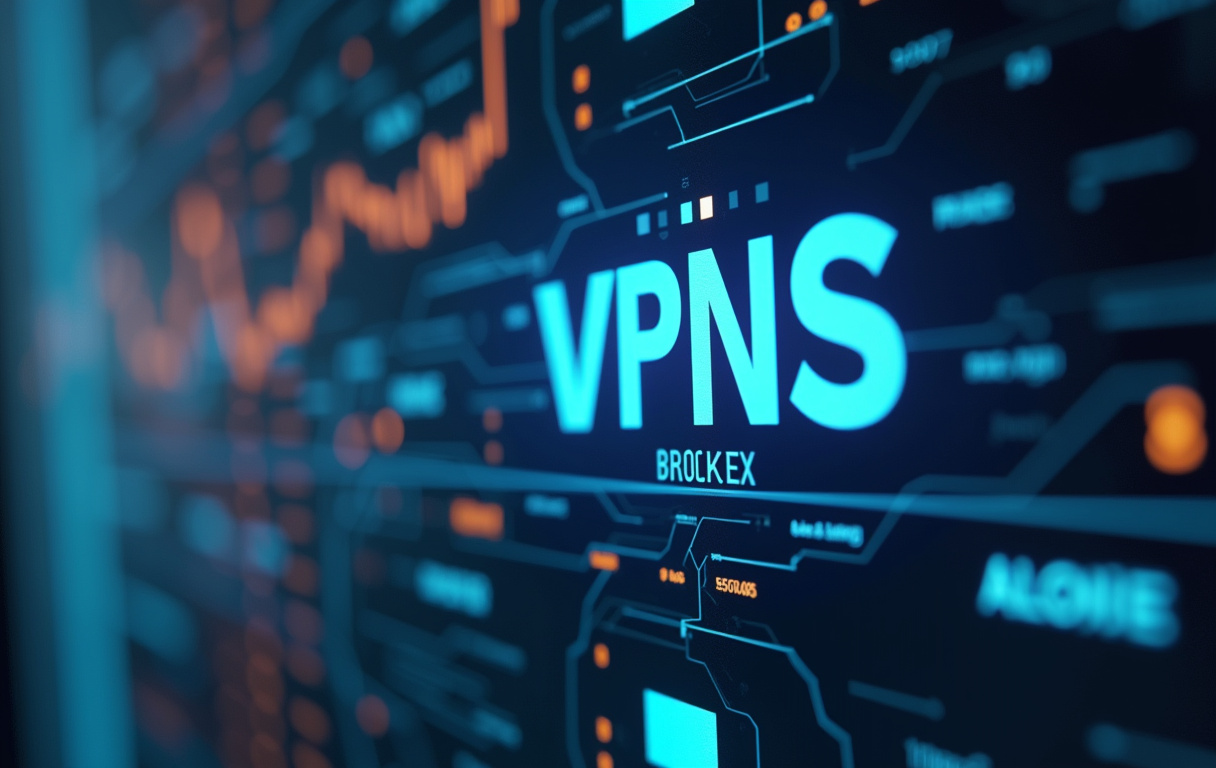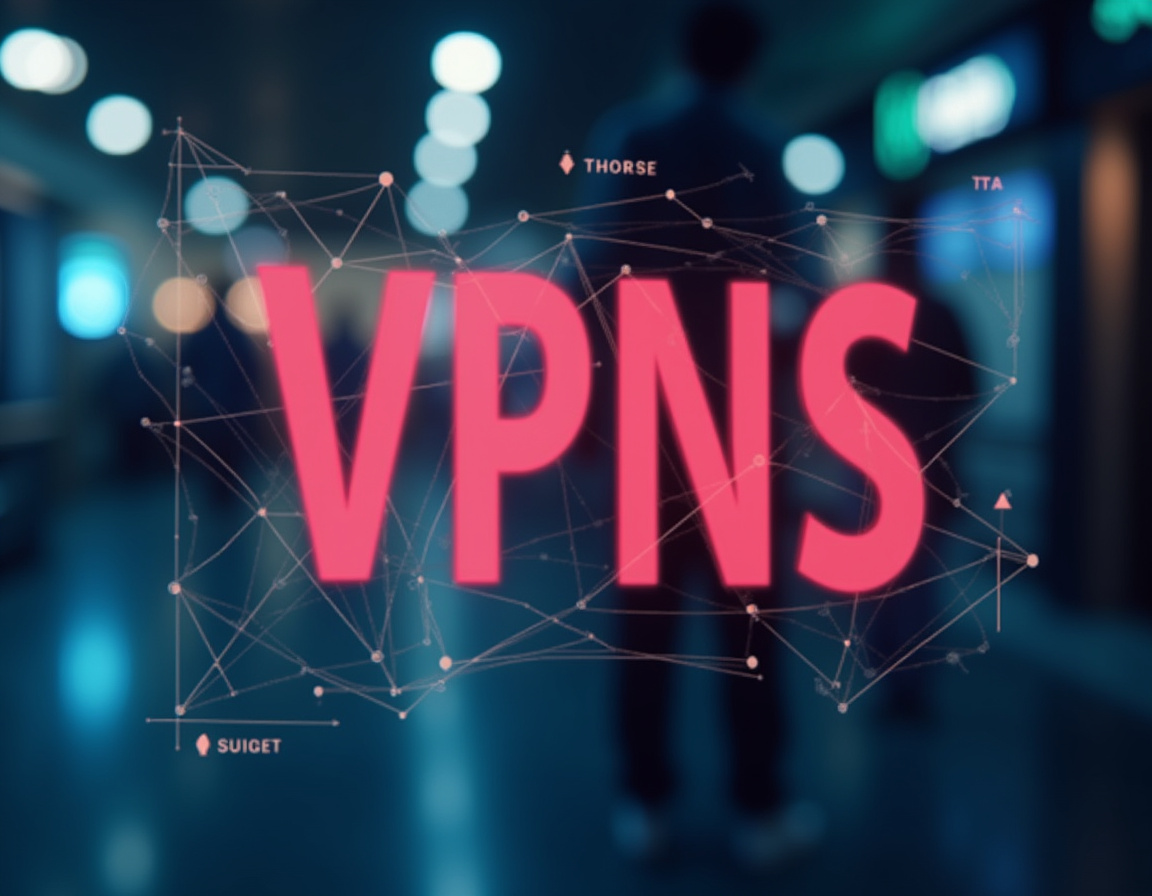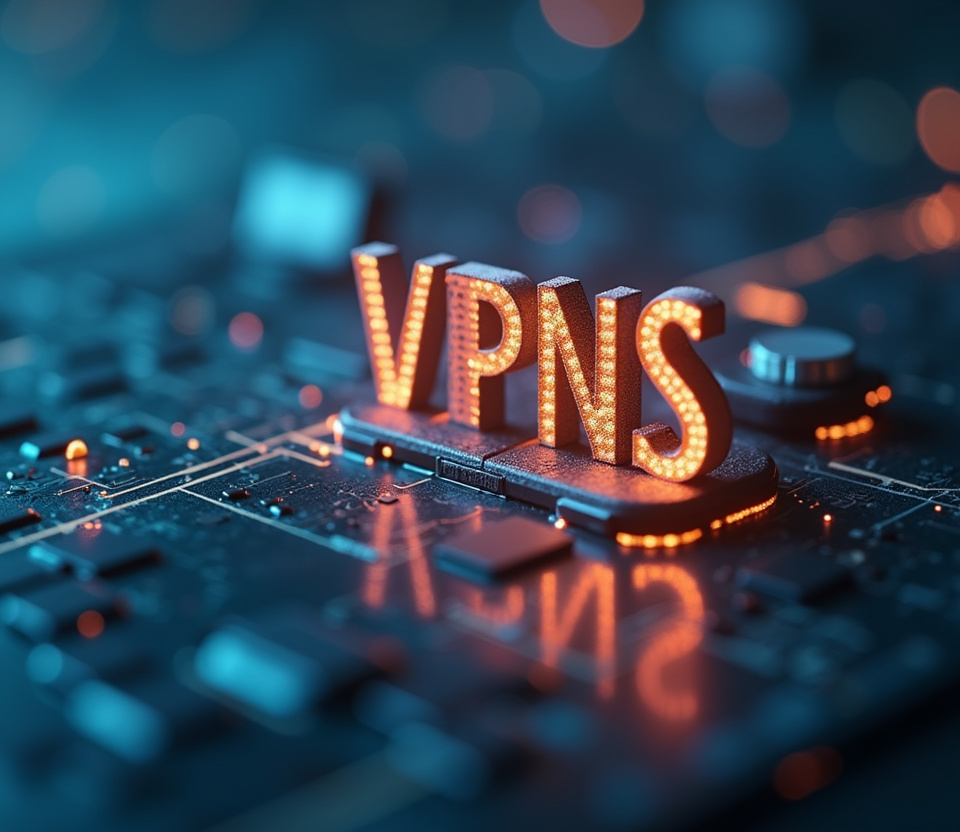VPNs for Community Banking: Securing Transaction Data

Table of Contents
The Rising Need for VPNs in Community Banking: Protecting Transactions and Customer Trust
In an era defined by relentless digital transformation, community banks face a dual imperative: embracing technological advancements to enhance customer service and operational efficiency, while simultaneously fortifying their defenses against the ever-evolving landscape of cyber threats. The traditional image of the close-knit, locally focused community bank, while still relevant, now exists within a complex web of interconnected systems, online platforms, and mobile applications. This digital expansion, while offering unprecedented opportunities for growth and customer engagement, also introduces significant vulnerabilities that must be addressed proactively and comprehensively.
One of the most critical areas of concern is the security of transaction data, the lifeblood of any financial institution. The compromise of sensitive customer information, including account numbers, transaction histories, and personal identification details, can have devastating consequences, ranging from financial losses and reputational damage to legal repercussions and a erosion of *customer trust*. In this context, Virtual Private Networks (VPNs) emerge as a powerful and essential tool for community banks seeking to bolster their *transaction security*, safeguard *customer trust*, and ensure the long-term viability of their operations.
A *community banking VPN* provides a secure, encrypted tunnel for all internet traffic, effectively shielding sensitive data from prying eyes and malicious actors. This is particularly crucial when employees are accessing the bank's network remotely, using public Wi-Fi hotspots, or engaging in transactions through less secure internet connections. Imagine a loan officer working from a coffee shop, accessing sensitive client financial data to approve a loan.
Without a *community banking VPN*, that connection is potentially vulnerable to eavesdropping. Hackers could intercept the data being transmitted, gaining access to account numbers, social security numbers, and other sensitive information. By encrypting the data stream, a *VPN for finance* makes it virtually impossible for hackers to intercept and decipher sensitive information, preventing data breaches and protecting customer privacy.
The importance of robust *transaction security* cannot be overstated. In today's digital age, customers expect and demand that their financial institutions take every possible measure to protect their personal and financial information. A data breach can quickly erode *customer trust*, leading to a loss of business and significant reputational damage.
Consider the impact of a local news story reporting that a community bank has suffered a data breach, exposing the personal information of hundreds or even thousands of its customers. The resulting panic and loss of confidence could be devastating, potentially leading to a run on the bank and long-term reputational harm. Community banks, which often rely on strong local relationships and a reputation for trustworthiness, are particularly vulnerable to the negative impact of a security breach.
Implementing a *community banking VPN* is a tangible demonstration of a community bank's commitment to *information protection* and *transaction security*. It sends a clear message to customers that the bank is taking proactive steps to safeguard their data and maintain their trust. This proactive approach not only protects sensitive data but also reinforces the bank's reputation as a responsible and trustworthy financial institution, fostering stronger customer relationships and promoting long-term loyalty.
Choosing the right *VPN for finance* requires careful consideration of several factors, including the level of encryption, the speed and reliability of the connection, the number of server locations, and the logging policy of the provider. It is essential to select a VPN provider that has a proven track record of security and privacy, and that adheres to strict industry standards. Furthermore, the *VPN for finance* should be configured to provide both encryption and authentication, ensuring that only authorized users can access the bank's network and that all data transmissions are protected from eavesdropping.
This includes setting up strong passwords, implementing multi-factor authentication, and regularly updating the VPN software to patch any security vulnerabilities. In addition to protecting *transaction data*, a *community banking VPN* can also enhance the overall security posture of a community bank by securing other types of sensitive *information protection*, such as employee records, financial statements, and proprietary business plans. By encrypting all internet traffic, a *VPN for finance* can prevent hackers from gaining access to these valuable assets, mitigating the risk of corporate espionage and financial loss.
For instance, imagine a competitor gaining access to a community bank's strategic plan through a hacked email account. This information could be used to gain a competitive advantage, potentially harming the bank's market share and profitability. A robust *community banking VPN* acts as a critical layer of defense, protecting against such scenarios and safeguarding the bank's long-term interests.
Understanding VPN Technology: A Shield for Community Banks
The implementation of a *community banking VPN* extends beyond simply installing software; it necessitates a comprehensive approach that integrates seamlessly with existing security policies and operational procedures. Crucially, staff training plays a pivotal role. Employees need to understand the importance of using the VPN consistently, especially when accessing sensitive data or conducting financial transactions remotely.
Imagine a teller, accustomed to only using the VPN at their workstation, suddenly finds themselves needing to access account information from a tablet during a community event. Without proper training, they might unknowingly bypass the VPN, exposing sensitive customer data to potential risks on a public Wi-Fi network. Training should cover how to connect to the VPN, how to verify the connection, and how to troubleshoot common issues.
Regular refresher courses and updates on emerging security threats can help ensure that employees remain vigilant and knowledgeable about best practices. For example, simulated phishing exercises can test employees' ability to identify and avoid malicious emails that could compromise the VPN connection or other security systems. Furthermore, the bank's IT department should establish clear guidelines for *VPN for finance* usage, including acceptable use policies, password management protocols, and procedures for reporting security incidents.
These guidelines should be regularly reviewed and updated to reflect changes in the threat landscape and the bank's evolving security needs. A well-defined acceptable use policy should outline the types of activities that are permitted when using the VPN, such as accessing banking applications and conducting authorized business transactions. It should also prohibit activities that could compromise security, such as downloading unauthorized software or visiting suspicious websites.
Strong password management protocols are essential for preventing unauthorized access to the VPN and the bank's network. Employees should be required to use strong, unique passwords and to change them regularly. Multi-factor authentication, which requires users to provide multiple forms of identification, can add an extra layer of security.
Integrating the *community banking VPN* with other security measures is also essential. This includes combining it with strong firewalls, intrusion detection systems, and multi-factor authentication to create a layered security approach. Firewalls act as a barrier between the bank's network and the outside world, preventing unauthorized access.
Intrusion detection systems monitor network traffic for suspicious activity and alert security personnel to potential threats. Multi-factor authentication adds an extra layer of security by requiring users to provide multiple forms of identification, such as a password and a code sent to their mobile phone, before gaining access to the network. This layered approach is crucial for defending against the diverse range of cyber threats that community banks face today.
The *VPN for finance* selected should also be compatible with the bank's existing infrastructure and security protocols. This includes ensuring that it supports the encryption algorithms used by the bank, such as AES-256, and that it integrates seamlessly with the bank's authentication system. Compatibility issues can lead to performance problems, security vulnerabilities, and increased complexity for IT staff.
Thorough testing and validation are essential to ensure that the VPN works seamlessly with the bank's existing systems. Regular security audits are also crucial to ensure that the *community banking VPN* is functioning properly and that there are no vulnerabilities that could be exploited by hackers. These audits should be conducted by independent security experts who can assess the effectiveness of the VPN and identify any areas for improvement.
The audit should also include penetration testing, which involves simulating a real-world cyberattack to identify weaknesses in the bank's security defenses. This proactive approach can help identify and address vulnerabilities before they are exploited by malicious actors. Monitoring and logging are also essential components of a *community banking VPN* implementation.
By monitoring network traffic and logging VPN usage, the bank can detect suspicious activity and identify potential security breaches. The logs can also be used to investigate security incidents and to identify the source of the breach. For example, if a user's account is compromised and used to access sensitive data, the logs can help track the attacker's activity and identify the extent of the damage.
It's crucial to choose a *VPN for finance* provider that has a strict no-logs policy, meaning that they do not store any information about users' online activity. This helps to protect customer privacy and to ensure that the bank is complying with data protection regulations. Furthermore, the VPN should be configured to provide real-time alerts in the event of a security incident, allowing the bank to respond quickly and mitigate the damage.
This proactive monitoring and alerting system can significantly reduce the impact of a security breach.
Implementing VPNs in Community Bank Infrastructure: A Strategic Approach
Beyond the technical aspects, the successful implementation of a *community banking VPN* relies heavily on building a culture of security awareness throughout the organization. This means fostering a mindset where all employees, from tellers to executives, understand the importance of *information protection* and take personal responsibility for protecting sensitive data. Regular security awareness training sessions should be conducted to educate employees about the latest cyber threats, the importance of strong passwords, the risks of phishing attacks, and the proper use of the *community banking VPN*.
These training sessions should be engaging and interactive, using real-world examples and case studies to illustrate the potential consequences of security breaches. For example, a training session could include a simulated phishing email that employees must identify and report. This hands-on approach can help reinforce the importance of security awareness and improve employees' ability to detect and respond to threats.
Creating a culture of security awareness also involves communicating regularly with employees about security matters. This can be done through newsletters, emails, posters, and other communication channels. The communication should be clear, concise, and easy to understand, avoiding technical jargon and focusing on the practical steps that employees can take to protect sensitive data.
For example, a newsletter could include tips on creating strong passwords, avoiding phishing scams, and reporting suspicious activity. The goal is to keep security top of mind for employees and to encourage them to take a proactive role in protecting the bank's assets. A critical aspect of security awareness is understanding the human element in cybersecurity.
Hackers often target employees with social engineering tactics, attempting to trick them into divulging sensitive information or clicking on malicious links. Training should emphasize the importance of verifying the identity of individuals requesting information, both online and over the phone. Employees should be taught to be suspicious of unsolicited requests for information and to report any suspicious activity to their supervisors or the IT department.
Building a strong human firewall is essential for protecting the bank against social engineering attacks. Moreover, the *community banking VPN* should be presented not just as a security tool, but as an enabler of secure remote work and enhanced productivity. When employees understand the benefits of using the VPN and see it as a tool that helps them do their jobs more effectively, they are more likely to embrace it and use it consistently.
This requires clear communication from management about the reasons for using the VPN and the benefits it provides, both to the bank and to the employees themselves. For example, employees can be shown how the VPN allows them to access critical banking applications and data securely from anywhere, enabling them to work remotely and respond to customer needs more quickly. In addition to employee training and communication, it is also important to establish clear accountability for security.
This means defining roles and responsibilities for security, establishing performance metrics, and holding employees accountable for their actions. For example, the IT department should be responsible for maintaining the *community banking VPN* and ensuring that it is functioning properly. Managers should be responsible for ensuring that their employees are trained on security policies and procedures.
And all employees should be responsible for following security policies and reporting any suspicious activity. Finally, fostering a culture of continuous improvement is essential for maintaining a strong security posture. This means regularly reviewing security policies and procedures, conducting security audits, and adapting to the ever-changing threat landscape.
The bank should also stay informed about the latest security technologies and best practices, and invest in ongoing training for its IT staff. By embracing a culture of continuous improvement, the bank can ensure that its security defenses remain strong and that it is well-prepared to protect its assets against the evolving threats of the digital age. Understanding the importance of *customer trust* as a direct result of the *information protection* provided by the *community banking VPN* allows for internal advocacy of continued investment.
VPNs for Services in Community Banks: Enhancing Security and Privacy
The long-term benefits of investing in a robust *community banking VPN* solution extend far beyond immediate security enhancements. A well-implemented *VPN for finance* can contribute significantly to operational efficiency, regulatory compliance, and enhanced *customer trust*, ultimately strengthening the community bank's competitive position in a rapidly evolving market. Consider the operational advantages.
A secure and reliable VPN enables employees to work remotely with confidence, accessing critical systems and data without compromising security. This flexibility can improve employee satisfaction, reduce absenteeism, and expand the talent pool available to the bank. For instance, a *community banking VPN* allows loan officers to securely access client information while meeting with customers offsite, providing personalized service and faster turnaround times.
Similarly, IT staff can remotely troubleshoot system issues, minimizing downtime and ensuring smooth operations. From a regulatory standpoint, implementing a *community banking VPN* can help community banks meet stringent compliance requirements mandated by various regulatory bodies. Financial institutions are subject to numerous regulations aimed at protecting customer data and ensuring the security of financial transactions.
These regulations often include specific requirements for data encryption, access controls, and security monitoring. A *VPN for finance* helps community banks comply with these regulations by providing a secure, encrypted channel for transmitting sensitive data and by facilitating the implementation of strong access controls. Non-compliance with these regulations can result in hefty fines, legal penalties, and reputational damage, making it imperative for community banks to prioritize compliance efforts.
Furthermore, a *community banking VPN* supports the implementation of robust disaster recovery (DR) and business continuity (BC) plans. In the event of a natural disaster, power outage, or other unforeseen disruption, a secure VPN allows employees to continue working remotely, accessing critical systems and data from alternative locations. This ensures that the bank can maintain essential operations and continue serving its customers, even in the face of adversity.
A well-designed DR/BC plan, supported by a reliable VPN solution, can minimize downtime, reduce financial losses, and protect the bank's reputation. Demonstrating this resilience is vital for maintaining *customer trust*. The scalability of a *VPN for finance* is also a crucial consideration.
As the community bank grows and expands its operations, the VPN solution should be able to scale accordingly, accommodating increasing numbers of users and devices without compromising performance or security. This requires choosing a VPN provider that offers flexible licensing options and robust infrastructure capable of handling growing traffic volumes. A scalable *community banking VPN* ensures that the bank can continue to provide secure and reliable access to its systems and data, even as its operations become more complex.
Choosing the right VPN provider is a critical decision that should be based on a thorough assessment of the bank's specific needs and requirements. Factors to consider include the provider's reputation, security certifications, customer support, pricing, and features. It is also important to conduct a pilot program to test the VPN solution in a real-world environment and ensure that it meets the bank's performance and security expectations.
A well-chosen *VPN for finance*, combined with strong security policies and procedures, can provide community banks with a powerful tool for protecting their assets, complying with regulations, and enhancing *customer trust*. Investing in a robust *community banking VPN* is an investment in the long-term success and sustainability of the institution, bolstering *transaction security*. Furthermore, the positive publicity surrounding proactive security measures can enhance the bank’s image, attracting new customers who value *information protection*.
In conclusion, the implementation of a *community banking VPN* is no longer a luxury but a necessity for financial institutions striving to thrive in the modern digital landscape. The escalating sophistication of cyber threats, coupled with increasingly stringent regulatory requirements and heightened customer expectations for data privacy, mandates a proactive and comprehensive approach to *information protection*. A *community banking VPN* serves as a cornerstone of this approach, providing a secure, encrypted tunnel for all internet traffic, shielding sensitive data from prying eyes, and bolstering the overall security posture of the bank.
By prioritizing *transaction security*, community banks can safeguard *customer trust*, enhance operational efficiency, and ensure long-term sustainability. The benefits extend far beyond simply preventing data breaches; a well-implemented VPN can also improve employee productivity, facilitate regulatory compliance, and enhance the bank's reputation as a trustworthy and reliable financial partner. However, the effectiveness of a *community banking VPN* depends on more than just the technology itself.
A successful implementation requires a holistic approach that encompasses thorough staff training, robust security policies, integration with existing security systems, and a strong culture of security awareness throughout the organization. Employees must understand the importance of using the VPN consistently, especially when accessing sensitive data or conducting financial transactions remotely. They must also be trained to recognize and avoid phishing scams and other social engineering tactics that could compromise the VPN connection.
Clear security policies should outline acceptable use guidelines, password management protocols, and procedures for reporting security incidents. These policies should be regularly reviewed and updated to reflect changes in the threat landscape and the bank's evolving security needs. Furthermore, the *community banking VPN* should be seamlessly integrated with other security systems, such as firewalls, intrusion detection systems, and multi-factor authentication.
This layered security approach provides multiple lines of defense against cyberattacks, making it more difficult for hackers to gain access to sensitive data. A strong culture of security awareness is also essential, fostering a mindset where all employees take personal responsibility for protecting *information protection*. This involves regular communication about security matters, ongoing training, and clear accountability for security responsibilities.
Choosing the right *VPN for finance* provider is a critical decision that should be based on a careful evaluation of several factors, including the provider's reputation, security certifications, customer support, pricing, and features. Community banks should also consider the provider's logging policy, ensuring that it aligns with their data privacy requirements. A reputable VPN provider will have a strict “no-logs” policy, meaning that they do not store any information about users' online activity.
The future of *community banking VPN* solutions will likely be shaped by emerging technologies such as artificial intelligence (AI) and machine learning (ML). AI and ML can be used to detect and respond to cyber threats in real-time, providing an additional layer of security. For example, AI-powered intrusion detection systems can identify anomalous network traffic patterns that may indicate a cyberattack.
ML algorithms can also be used to analyze VPN usage patterns and identify potential security vulnerabilities. As cyber threats continue to evolve, community banks will need to stay ahead of the curve by embracing these emerging technologies and continuously improving their security defenses. In essence, the *community banking VPN* offers not just a shield against present threats, but a platform for future-proofed security, safeguarding *customer trust* and ensuring the continued prosperity of these vital community institutions.
Investing in a *VPN for finance* is investing in peace of mind, knowing that *transaction security* is a top priority.
Stay Updated
Get the latest VPN news, tips, and exclusive deals to your inbox.




